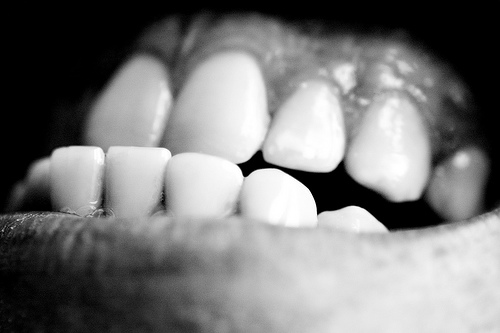How To Stop Teeth Grinding: 7 Tips


 Grinding your teeth may seem like a harmless habit, but over time, all that wear and tear can destroy enamel, place significant stress on your jaw muscles and joints and even cause persistent jaw and headaches.
Grinding your teeth may seem like a harmless habit, but over time, all that wear and tear can destroy enamel, place significant stress on your jaw muscles and joints and even cause persistent jaw and headaches.
Still, like most habits, learning how to stop grinding your teeth can be difficult. It begins by understanding why you developed the habit in the first place.
Stress
Today, most of us face some degree of stress just about every day. While some people may bite their nails or twirl their hair, others turn to tooth grinding as a way to release stress.
Sleep disorders
Some types of sleep disorders, including apnea, can also cause you to grind your teeth. In fact, for people who don’t know they suffer from apnea, signs of grinding uncovered during a dental evaluation are often the first indication they have the condition.
Medication of health condition
Some antidepressants have been linked with the teeth grinding habit, and certain diseases including neurological disorders can also cause grinding.
Bite misalignment
Crooked teeth are probably the number one cause of grinding, and the reason is simple: Your teeth form in pairs – for every upper tooth, there’s a “matching” lower tooth. When you chew or bite, those teeth are designed to mesh and meet in a specific way. When your teeth are crooked or misaligned, or if you’re missing teeth, your mouth naturally tries to “line up” as best as it can – and that can mean grinding.
Now that you understand the common causes of grinding, here are some tips to help you deal with the habit until you can find a permanent solution:
1. Have your bite evaluated
Have a dental checkup to help identify potential dental-related causes. Your dentist can check for signs of wear and misalignment that can be at the root of your habit, as well as suggesting other types of evaluations such as sleep studies to check for apnea.
2. Learn to manage your stress
Some people can handle stress naturally; for others, stress can cause significant health issues and habits, including teeth grinding. If you feel you need some help managing your stress, consider yoga or meditation to calm yourself and relieve anxiety so you don’t subconsciously turn to grinding. If you grind during your sleep, try taking a relaxing bath before turning in. regular exercise is also a great stress reliever.
3. Seek counseling
In some cases, taking a class in yoga or meditation may not be enough to help you learn to cope with stress. Seeing a mental health professional can provide you with new, effective tools, including self-hypnosis, guided imagery exercises and good, old-fashioned conversation with a skilled professional who can help you understand your stress and learn to manage it successfully.
4. Be aware
This tip may sound obvious, but try to understand when and why you grind your teeth during the day. For instance, there may be a time of day or an event that triggers grinding. Once you identify the trigger, you can make a conscious effort to avoid grinding.
5. Rest your jaw muscles
If you have jaw discomfort or headaches, try massaging your jaw muscles or applying a warm compress to the jaw area to relax muscles and relieve pain. Taking an over-the-counter pain reliever can also help relieve pain and reduce inflammation.
6. Wear a night guard
In some cases, such as when disease, medication or chronic stress is the underlying cause of your grinding habit, using a mouthguard for teeth grinding may be the best way to prevent stress on your jaw and avoid excessive tooth wear and headaches. Every night guard is custom designed so they fit comfortably based on each patient's bite pattern. Worn at night, amouthguard for teeth grinding can prevent the habit even when you aren’t aware you’re indulging.
7. Ask your dentist about realigning your bite
If your bite is misaligned or you’re missing teeth, the best way to prevent grinding is to have those issues corrected. Orthodontics, bridges, caps, crowns and partial dentures can help your teeth achieve the ideal alignment they were meant to have, which means your jaw won’t constantly be shifting, trying to “line things up” by grinding.
Teeth grinding is more than an annoying habit; left untreated, it can damage tooth surfaces, leaving teeth exposed to decay and eventually leading to tooth loss. It can also cause chronic headaches and play a contributing role in tempomandibular joint disorder (TMJ).
The first step in kicking the teeth grinding habit is to see your dentist for a complete bite evaluation. If you grind your teeth or if you have persistent jaw pain or headaches, don’t delay treatment: Call our office today to schedule an appointment and start feeling better.
Image Credit: Brandon Heyer



